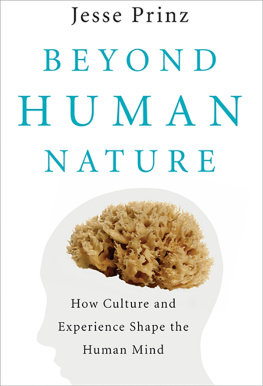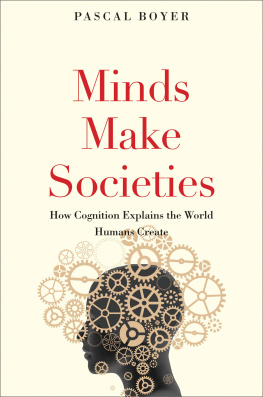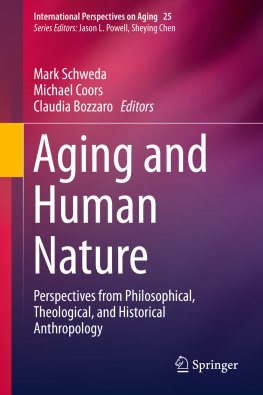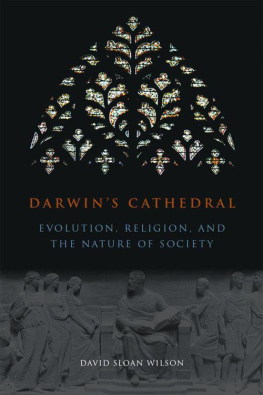The Liberal Delusion
The roots of our current moral crisis
__________________________
John Marsh was born in 1947 in Cleveleys Lancashire and educated at Blackpool Grammar School and the universities of Lancaster and Oxford. His study of history and philosophy led to a lifetime interest in these subjects and especially on the impact of Enlightenment thinking on society. He taught history briefly before working in law and commerce. In 1997 he established a property investment business in London. He is married with three grown-up boys. His book The Liberal Delusion examines liberalism in the light of recent scientific discoveries, and argues that liberalism's core belief in human goodness is false, unscientific and harming society. His conclusion is that society has become too liberal, and that we urgently need to reappraise liberalism and separate out the positive, such as the commitment to greater social justice, from the negative - excessive freedom and loss of morality.
The Liberal Delusion
The roots of our current moral crisis
_________________________________
John Marsh

Arena Books
Copyright John Marsh 2012
The right of John Marsh to be identified as author of this book
has been asserted in accordance with the Copyright, Designs and
Patents Act 1988.
First published in 2012 by Arena Books
Arena Books
6 Southgate Green
Bury St. Edmunds
IP33 2BL
www.arenabooks.co.uk
Distributed in America by Ingram International, One Ingram Blvd., PO Box
3006, La Vergne, TN 37086-1985, USA.
All rights reserved. Except for the quotation of short passages for the
purposes of criticism and review, no part of this publication may be
reproduced , stored in a retrieval system, or transmitted, in any form or
by any means, electronic, mechanical, photocopying, recording or
otherwise , without the prior permission of the publisher.
John Marsh
The Liberal Delusion the roots of our current moral crisis
1. Civilisation, Western 21 st century. 2. Liberalism. 3. Social ethics.
4. Politics and culture.
I. Title
303.372-dc23
ISBN-13 978-1-906791-99-5
E-book ISBN 978-1-909421-10-3
BIC classifications:- JFF, JFM, JFH, JFCX.
Printed and bound by Lightning Source UK
Cover design
By Jason Anscomb
Typeset in
Times New Roman
This book is printed on paper adhering to the Forest Stewardship Council
(FSC) mixed Credit FSC C084699.
DEDICATION
For Kathy
and our boys
Andrew, Edward and James
with love
ACKNOWLEDGEMENTS
Over the last few years many people have helped me on this book: by acting as sounding boards for the arguments, reading chapters and commenting on them, proof-reading etc. However three people deserve a special mention: Gary Linney, Dr. Peter May and Dr. Stephen Wren.
(Contents pages refer to the printed edition of this book. Footnotes will not necessarily appear in the E-book edition of this work, and hence the printed version should be consulted for this purpose.)
Contents
Index
Mankind is naturally good.
Jean-Jacques Rousseau
An honest discussion of human nature has never been more timely.
Throughout the twentieth century, many intellectuals tried to rest principles of decency on fragile factual claims such as that human beings are biologically indistinguishable, harbour no ignoble motives, and are utterly free in their ability to make choices. These claims are now being called into question by discoveries in the sciences of mind, brain, genes and evolution.
Steven Pinker, Professor of Psychology at Harvard,
in The Blank Slate.
It is the liberals who fear liberty
and the intellectuals who want to do dirt on the intellect" .
George Orwell in The Freedom of the Press
Foreword
T his book is my attempt to answer a riddle, to solve a puzzle. Have the changes in society and culture over the last 50 years been beneficial or harmful, or a mixture of the two? I am not claiming that everything was better in the 1950s; but I believe there have been losses as well as gains since then. Many of the changes have been driven by the dominant outlook of this period: liberalism. So my journey of exploration has been in part an attempt to understand liberalism. Obviously for all of us it is our own experiences that play a key role in shaping our views. I was fortunate in many - but not all - respects in my childhood.
I was a babyboomer, born shortly after World War Two at Cleveleys on the Fylde coast of North Lancashire, and so I became conscious of the world in the late 1950s. I loved the landscape of northern England, the Lake District, the Pennines and the Lancashire Dales. We were lucky to have a caravan on the shores of Lake Windermere and would travel up to the Lakes through pretty villages like Yealand Redmayne and Yealand Conyers. We would stop on the way at a second-hand bookshop in Kendal to buy holiday reading such as Sherlock Holmes stories. Once arrived we used to canoe on the lake and go across to one of the islands for BBQs. In this setting I read Wordsworth's poetry and each year my school, Blackpool Grammar School put on a Shakespeare play. Life was also enriched by being part of a large extended family with aunts, uncles, cousins and grandparents. My paternal grandfather, Arthur Marsh, was my mentor.
I remember an era of optimism and growing prosperity, coupled with a feeling of fraternity born of the hardships and comradeship of wartime. I have fond memories of Lancashire folk, who were - to use a Lancashire dialect word - jannock: fair, straightforward and warm, people who today some sections of the media demonise. It was an era of stability with a sense of common purpose. The Labour Party had created the National Health Service and helped make society more equal, and the Conservative Party in the 1950s had embarked on a vast council house building programme. I can just remember the coronation of Queen Elizabeth - an occasion for national rejoicing. We took a pride in British achievements, including standing alone against Hitler. At that time Britain was a world leader in computing, nuclear power and aerospace. So in many respects life for me was rich in terms of nature, society, family, history and culture. Yet it was not a good time for minorities: poor Alan Turing, having brilliantly helped to solve the Enigma code during the war and pioneered computing, was chemically castrated for being homosexual; class divisions were still too wide and ethnic minorities suffered discrimination. Also women did not enjoy the greater equality we have today.
Later as a student at Lancaster and Oxford universities I met many self-styled progressives, but found their arguments unconvincing: Marxists hoping for the dictatorship of the proletariat, blithely ignorant of the horrors of Stalin's Soviet Union or Mao's China. I had studied Marx as part of my degree and knew his theory was deeply flawed. I had doubts about the progressive prospectus; yet doubters like me were in a distinct minority. Later I discovered fellow sceptics. George Orwell was furious when liberals tried to stop the publication of Animal Farm - a shameful episode. In response he wrote an outspoken hard-hitting preface to that book, which still burns with incandescent rage. It has been largely ignored by the people who were its targets - liberals and intellectuals. It was published after his death as the essay The Freedom of the Press . In it Orwell accused liberals of dishonesty and of trying to falsify history; he gave as an example - the BBC.
Sir Isaiah Berlin in a famous essay called The Two Concepts of Liberty explained how liberals had undergone a peculiar evolution, from a belief in freedom to an intolerant conviction that they were morally and intellectually superior, and this gave them the right to bully and coerce others. When he was Prime Minister Tony Blair wrote to Berlin challenging his arguments in that essay. Blair asserted that there was a case for a superior elite imposing its views on backward ordinary people; although he did admit that it hadn't worked terribly well in the case of the Soviet Union. Quite so. Later Rowan Williams, the Archbishop of Canterbury accused white liberals of saying things which were demonstrably untrue. Historians Simon Schama, Robert Conquest and Norman Davies have all confirmed that history has been slanted to favour a liberal viewpoint. Events which show liberals and rationalists in a bad light have been swept under the carpet . Shaun Bailey, a youth worker and pamphleteer, argues that middle class liberal values have harmed poor communities. I examine all these arguments in greater detail below.
Next page







